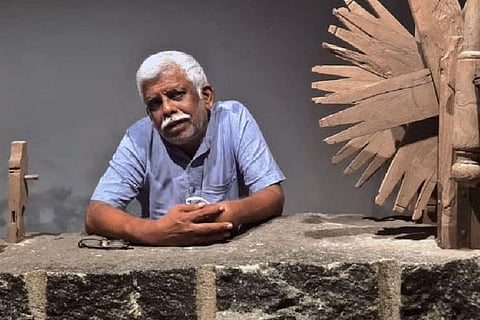

A day after a sessions court's observation that sexual harassment offence was not attracted when the woman was wearing a "sexually provocative dress" triggered a row in Kerala, another controversial order by the same judge regarding applicability of the SC/ST Act has come to light. In an order dated August 2, the sessions judge S Krishnakumar granted bail to 74-year-old social activist and writer Civic Chandran in a case under the Scheduled Castes and the Scheduled Tribes (Prevention of Atrocities) Act (SC/ST Act) by saying that offences under this statute would not prima facie stand against him as he was fighting against the caste system.
“He is fighting against the caste system and is involved in several agitations. It is not at all stated in the first information statement that the act of the accused was with the knowledge that the victim belonged to a member of SC. The copy of the SSLC book of the accused shows that he had refused to mention caste name in it. The accused is a reformist and is engaged in fighting against the caste system, writing for a casteless society. It is highly unbelievable that he will touch the body of the victim fully knowing she is of the Scheduled Caste,” the order said.
The same judge on August 12 granted bail to the same accused in a sexual abuse case, observing that that the offence under sexual harassment is not prima facie attracted, when the woman was wearing "sexually provocative dress".
The Kozhikode Sessions Court had observed that the photograph of the complainant, produced by the accused along with the bail application, would explain that she "herself is exposing to dresses which are having some sexual provocative one" and it is impossible to believe that a man aged 74 and physically disabled can forcefully put the complainant on his lap and sexually press her breast."
Meanwhile, criticism against the August 12 order continued to pour in from the state and various parts of the country with National Commission for Women (NCW) chairperson Rekha Sharma and senior CPI(M) Politburo member Brinda Karat strongly condemning the sessions court judge's observation.
"The observations of the Kozhikode sessions court regarding a complainant's clothes, while granting bail in a sexual harassment case are extremely unfortunate and @ncwIndia strongly condemns it. The court has overlooked the far reaching consequences of such an order," Sharma tweeted.
Karat, speaking to media persons in Delhi, said, "The higher judiciary should take note of the comment and observations (by the Kerala sessions court) and take the requisite action. "Will the higher judiciary take any measures to restore the confidence of women, who are victims of sexual abuse, in the courts."
Kerala Women and Child Development Minister Veena George also criticised the sessions judge's order by terming it as "unfortunate". Speaking to the media, she said that such orders and observations could lead to the public losing their trust or faith in the judiciary which should not happen.
The order is also anti-women, she said and added that "we should move forwards and not backwards".
Another senior woman CPI(M) leader and Politburo member, Subhashini Ali, too appeared to hold a similar view when she told the media in Delhi that such orders, judgements and comments "only increase the insecurity of women in our society and also increase the violence they are facing".
The sessions court had in its August 12 order said that to attract IPC Section 354 A (Sexual harassment and punishment for sexual harassment) there must be physical contact and advances involving unwelcome and explicit sexual overtures, there must be demand or request for sexual favours and there must be a sexually coloured remarks.
"The photographs produced along with the bail application by the accused would reveal that the de facto complainant herself is exposing to dresses which are having some sexual provocative one. So Section 354A will not prima facie stand against the accused.
"Even admitting that there was a physical contact, it is impossible to believe that a man aged 74 and physically disabled can forcefully put the defacto complainant in his lap and sexually press her breast," the court had observed and granted bail to the accused saying it was a "fit case wherein the accused can be granted bail."
Chandran has been accused in two sexual harassment cases, one by a writer and belonging to a Scheduled Tribe community, alleging sexual harassment by him during a book exhibition here in April. The other was by a young writer, who accused him of sexual harassment during a book exhibition in town in February 2020.
The Koyilandy police had registered cases against Chandran, but had not been able to arrest him as he has been at large since the first case was registered.
Chandran was granted anticipatory bail in the first case on August 2.